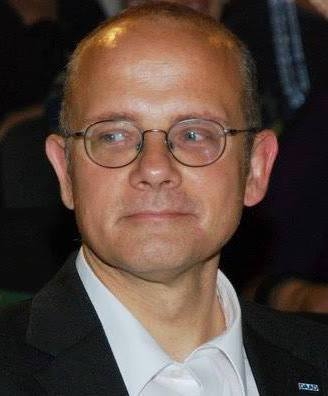The year 2011 is crucial for the relationship between Ukraine and the European Union: Kyiv and Brussels are negotiating an Association treaty that will include an unprecedented Deep and Comprehensive Free Trade Agreement. If successfully concluded, this would be the largest foreign treaty in the history not only of Ukraine , but also of the European Union. Anatoliy Martsinovskiy of the Ukrainian "Eurobulletin," published by the Kyiv Delegation of the EU, interviewed Dr. Andreas Umland, member of the Valdai Discussion Club (valdaiclub.com), Associate Professor of Political Science at the National University of "Kyiv-Mohyla Academy" (ukma.kiev.ua), and General Editor of the trilingual book series "Soviet and Post-Soviet Politics and Society" (ibidem-verlag.de/spps.html). This interview was earlier published by the "Kyiv Weekly" and "Foreign Policy Journal." It is reprinted here with the permission of the editors.
- If one looks at the EU-Ukraine relations during the first half of the year, can one say that everything has been proceeding according to plan?
A.U.: There have been positive as well as negative developments. The talks on the Free Trade Agreement and the Association Agreement are proceeding more or less well. At the same time, developments inside Ukraine , in particular concerning violations of such principles as the rule of law, political pluralism and democratic procedure, are unsatisfactory. The situation with these issues is getting worse and worse.
- Does the lawsuit against former Prime Minister Yuliya Tymoshenko pose a potential threat to the EU-Ukraine relations and the talks you mentioned?
A.U.: I think that it does, if the sentence is unreasonably tough and debars her from future political activity. Europe would consider such a sentence as an attempt to eliminate the main leader of the opposition, from the political process. It may be the case that Tymoshenko indeed violated certain laws and there is some basis for a lawsuit. In Ukraine , however, many of those in power violated and still violate the law, yet they are not prosecuted. The peculiar persistence in the prosecution of Tymoshenko suggests that we are facing a case of selective, politically motivated application of the law.
- A few months ago, there were passionate discussions concerning Ukraine 's possible entry of the Customs Union of Russia , Kazakhstan and Belarus . This would have made it impossible to sign the Free Trade Agreement with the EU, while the EU Association Agreement would have lost its significance. Do you think that this possible turn is already forgotten, or may the prospect of joining the Customs Union again become a topic of interest?
A.U.: I think it may become relevant again. If Tymoshenko is debarred from political activities, an escalation of the confrontation between the EU and Ukraine over this issue will be inevitable. It would result in a domino effect concerning other aspects of EU-Ukrainian relations, and the idea of joining the Customs Union may resurface.
However, it also appears that the process of rapprochement between Ukraine and the EU has already gone too far for Kyiv to venture such a flip-flop. This would trigger a negative social reaction towards the authorities. Besides, the Party of Regions hopefully understands that joining the Customs Union is a risky move. On the one hand, it may become an instrument of Russian political influence upon Ukraine - up to the point of a partial loss of the country's sovereignty. I doubt that the Party of Regions or President Viktor Yanukovych are interested in this.
On the other hand, Russia and Belarus - as well as, to a certain extent, Kazakhstan - are wrapped up in their own problems concerning the further political and economic development and modernisation of their societies. It would be strategically unwise for Ukraine to join a Customs Union in which two member states are currently, at a crossroads of their development. It is unclear what will happen to Russia and Belarus in the near future, and what socio-economic as well as geopolitical paths these two countries will eventually choose. Joining an organisation with such an unclear future would be a dead end for Ukraine .
Of course, the EU too has problems, for example, concerning the future of the Euro-zone. Yet it is possible to envisage already now the ways in which the Union will eventually solve them - even if only on a long-term basis. The situation concerning the EU is, altogether, more predictable than that within the Customs Union.
(Note: You can view every article as one long page if you sign up as an Advocate Member, or higher).





